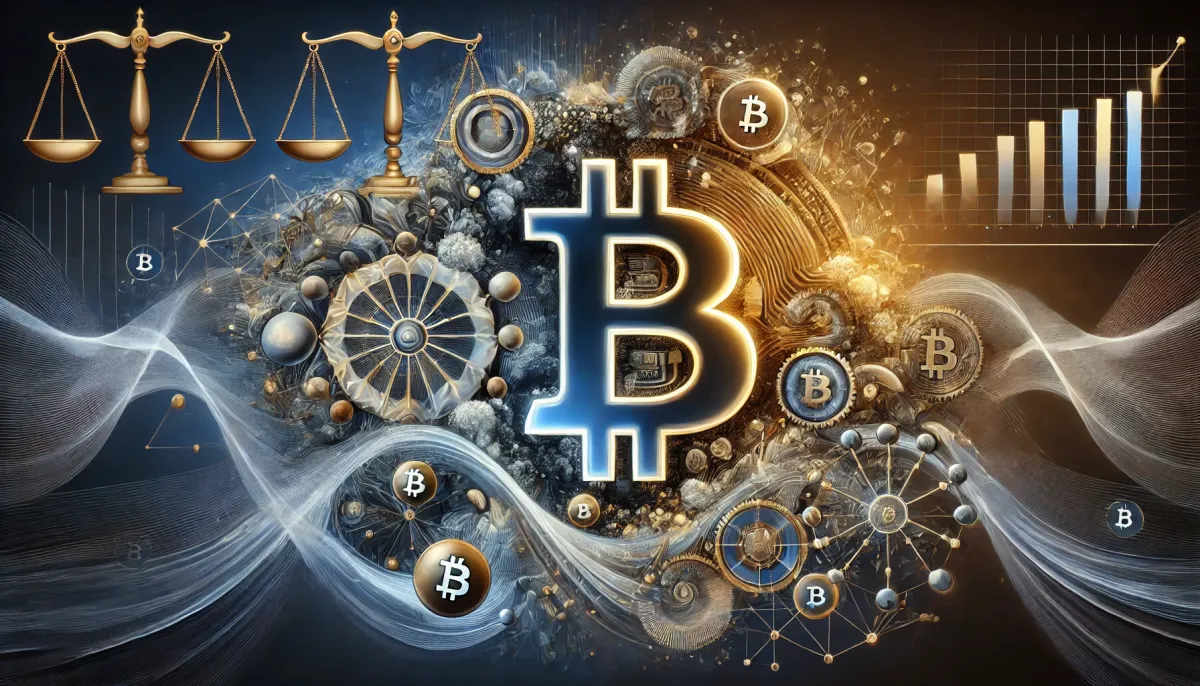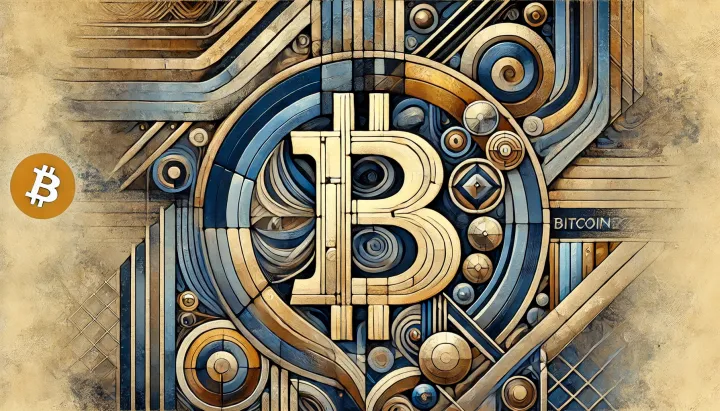Economic Thought Evolution and Policy Implications
The January 23, 2025 episode of the Lex Fridman Podcast featuring Jennifer Burns explores the evolution of economic thought—from classical theories and the marginal revolution to contemporary debates over government intervention and market freedom.

- My 'briefing notes' summarize the content of podcast episodes; they do not reflect my own views.
- They contain (1) a summary of podcast content, (2) potential information gaps, and (3) some speculative views on wider implications.
- Pay attention to broadcast dates (I often summarize older episodes)
- Some episodes I summarize may be sponsored: don't trust, verify, if the information you are looking for is to be used for decision-making.
Summary
The January 23, 2025 episode of the Lex Fridman Podcast featuring Jennifer Burns explores the evolution of economic thought—from classical theories and the marginal revolution to contemporary debates over government intervention and market freedom. The discussion provides insights into how historical crises and methodological shifts continue to influence economic policy (it doesn't focus on Bitcoin specifically although I have some implications near the end).
Take-Home Messages
- Economic evolution: Classical theories and modern quantitative models underpin today’s policy debates.
- Crisis impact: Historical downturns like the Great Depression have redefined economic frameworks.
- Intervention debate: The tension between government oversight and free-market principles remains central.
- Modeling challenges: Advancements in quantitative analysis offer precision but risk oversimplification.
- Educational reform: Bridging traditional and modern theories is essential for informed policymaking.
Overview
This discussion, part of Lex Fridman's longer interview with Jennifer Burns, details the transformation of economic thought from the early classical period, marked by the labor theory of value, to the revolutionary shift introduced by marginal analysis. This transformation paved the way for incorporating mathematical models into economic discourse.
Burns explains how the marginal revolution borrowed concepts from physics to model economic equilibrium, setting the stage for modern neoclassical analysis. The discussion highlights the impact of these changes on the formulation of economic policies.
A substantial part of the conversation is dedicated to contrasting the merits of Keynesian fiscal intervention with free-market ideologies championed by the Chicago and Austrian schools. These debates underscore the enduring tension between state-led initiatives and market self-regulation.
Historical context is woven throughout the narrative, particularly the influence of the Great Depression on shifting economic paradigms and policy responses. The evolution of these ideas illustrates the dynamic nature of economic theory in addressing societal challenges.
Stakeholder Perspectives
- Academics: Seek integration of historical perspectives with modern quantitative approaches.
- Policymakers: Aim to balance regulatory intervention with market efficiency.
- Financial Analysts: Monitor shifts in economic models to predict market behavior.
- Educators: Focus on updating curricula to reflect the evolution of economic thought.
- Industry Leaders: Watch for policy reforms that affect market stability and innovation.
Implications and Future Outlook
The discussion suggests that the integration of traditional economic insights with modern quantitative models will continue to shape future policy frameworks. A deeper understanding of past crises, like the Great Depression, can guide more effective regulatory measures in contemporary markets. This evolution in thought is likely to influence both domestic and international economic policies.
There is an urgent need to refine economic models so they better reflect complex social realities without sacrificing analytical precision. Such improvements will enable policymakers to design more resilient fiscal strategies and foster greater market stability. The future of economic policy depends on striking the right balance between innovation and tradition.
Furthermore, enhanced educational initiatives are critical to disseminate these complex ideas effectively. Bridging the gap between established theories and emerging methodologies will empower a new generation of economists and decision-makers. This knowledge transfer is essential for adapting to rapidly evolving economic landscapes.
Information Gaps
- How can economic analysis reconcile traditional qualitative approaches with modern quantitative models? This question is critical because it addresses the foundational challenge of integrating historical context with analytical precision. Answering it will help improve both academic discourse and policy formulation.
- What limitations exist in applying mathematical models to complex economic phenomena? This question is important because it identifies potential pitfalls in over-reliance on quantitative methods. Understanding these limitations is key to developing models that accurately reflect economic complexities.
- What are the long-term impacts of government intervention on market efficiency? This question is essential as it informs debates on fiscal policy and regulation. Its resolution can provide policymakers with insights to balance market freedom with necessary oversight.
- How have past economic crises shaped contemporary economic theories? This question is significant because it links historical events to current policy frameworks. The answer could guide future strategies to mitigate similar crises while informing economic reforms.
- How can existing economic models be adapted to address modern financial challenges? This question is crucial as it tackles the adaptability of traditional models in a rapidly changing economic landscape. Addressing it can bridge the gap between established theories and the demands of today’s economic environment.
Broader Implications for Bitcoin
Decentralized Economic Principles:
The discussion on free-market versus interventionist approaches highlights the value of decentralized decision-making. Such principles resonate with Bitcoin’s trustless, peer-to-peer network that minimizes centralized control. Understanding these economic debates can inform Bitcoin’s role as an alternative financial system that resists centralized manipulation.
Fiscal Policy Influence:
The exploration of government intervention and Keynesian fiscal policy offers insights into how monetary policy can impact financial systems. Bitcoin, by contrast, operates on a fixed supply and decentralized protocols, providing a counterbalance to state-driven economic measures. This contrast underscores Bitcoin’s potential as a hedge against inflationary fiscal policies.
Market Adaptability:
Historical crises have shown that adaptability in economic models is crucial for stability. Bitcoin’s design, which emphasizes protocol resilience and decentralized consensus, mirrors this need for flexibility in the face of evolving market conditions. Recognizing the dynamics of economic evolution can help Bitcoin stakeholders prepare for regulatory and market challenges.
A tangent on Institutional Economics
My own training in economics focused on a mix of neoclassical and institutional economics, and I tend to draw heavily from the institutional lineage of Douglass North, Oliver Williamson, and Elinor Ostrom (who I studied under for one year, at Indiana University, during my PhD).
Unlike approaches that focus solely on mathematical models or equilibrium analysis, institutional economics examines how historical context, social norms, and evolving regulatory structures influence economic behavior and policy outcomes.
Humans are goal-oriented but imperfect decision-makers influenced by social, regulatory, and real-world constraints. This points to the role of overlapping forms of 'polycentric' governance, with an emphasis on the virtues of redundancy and evidence-based contestation across governance arenas.
From an institutional economics perspective, the decentralization of goverment is not in itself a goal. The optimal degree of decentralization is a function of the transaction cost-minimizing form of governance.
What's really interesting about Bitcoin is how it has wide-ranging potential to shift constraints, impacting everything from the costs of transmitting value to the time preferences that shape humans' consumption and savings patterns.
In a complex polycentric governance system, that implies different levels of decentralization for different kinds of challenges, which vary according to geographic, political, social, and resource constraints.



Comments ()